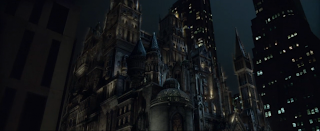The fantastic Jillian Larkin, author of the Flappers trilogy. I absolutely loved the first book, Vixen, and getting to interview Jillian has made me eager to finish the series and find out how Gloria, Lorraine and Clara get on.
1.
What is it about the 1920s that appeals to you so much?
Growing up, I absolutely loved
the film Thoroughly Modern Millie. I watched
it over and over so many times that my mother was forced to ban it from the
house! It was flms like this and novels
such as F Scott Fitzgerald’s The
Great Gatsby (which I’ve literally read over a dozen times) that made me
fall in love with the time period. The 1920s were also such a spectacular time
for women and teens. Prohibition changed the nation, making rebellion more
acceptable than ever. Women gained independence, and were able to express
themselves more freely and make their own choices. All of these aspects – plus the
glamorous fashion, dangerous speakeasies, and deliciously fun slang – makes it
such a fun decade to write about.
This is difficult because I see
a small part of myself in all of my characters, but I’d have to say Gloria. When
first playing around with the idea of writing The Flappers series, I already knew I wanted to write about a
nightclub singer. I sing myself, but knew that I’d rather write about a singer
than sing for a living. Gloria was created through combining my love of singing
and my love of the Roaring 20s. I also see myself in Gloria because she desires
to pave her own path in life rather than follow one that has already been
decided for her. I feel every girl, myself included, can relate to wanting to
break the mold and follow one’s own dreams.
3.
Most Jazz Age novels seem to be set in and around New York. What drew you to
Chicago?
As a New Yorker, I have a
special love for the City, which is why the series ended up in the Big Apple by
the second novel, Ingenue. However, I
also feel Chicago played an important role in the marvellous world of the
1920s. The Green Mill, Jelly Role Morton, and Al Capone all became famous in
Chicago. The city was bursting at the seams with scandal, glamour, and jazz
just as New York City was at the time. it felt like the right place to kick off
the story, and new York the right place to end it.
Quick
fire round!
1.
Favourite word?
It’s hard to choose from all
the great flapper slang I’ve learned over the course of writing The Flappers, but I’ll say my favourite
word/phrase is ‘the cat’s pajamas’.
Baz Luhrmann’s revival of The Great Gatsby! I love how Luhrmann
and Jay Z put a modern twist put a modern twist on a timeless classic. I still
find myself watching trailers and interviews from time to time (and Google-ing
the incredible costumes)!
3.
What are you reading at the moment?
I have actually been reading a
journal-style book on the TV writing world entitled Hello, Lied the Agent by Ian Gurvitz. Packed with humour, the book
wittily reveals shocking facts about the inner workings of the entertainment
industry. It’s fascinating how many sitcom ideas are pitched each year in the
brutal competition to get a show on the air! I’d recommend this read to anyone
in writing and/or Holloywood.
That sounds like a really
interesting read! Thanks so much Jillian! The final book in The Flappers series, Diva, was released May 2nd by
RHCP.
Sophie













